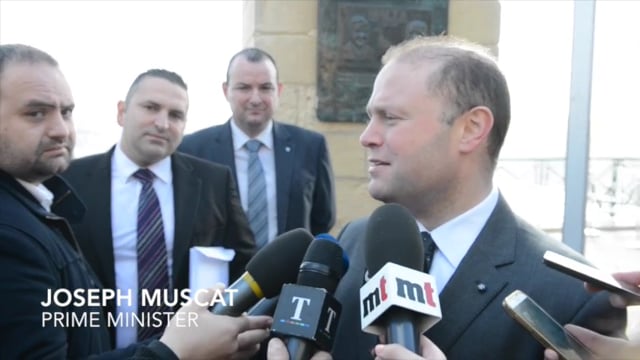[WATCH] Muscat calls for end to ‘military model of conformity’ in schools
Education+ launched to bridge gap between education and employment and to change education system into one that 'lights up students' creativity'


The ‘military model of conformity’ that many schools are based on has failed to inspire and motivate students, Prime Minister Joseph Muscat said.
“We can do better than that,” Muscat said. “We owe it to our children to provide an education system which lights up their creativity, opens their horizons, and gives them a platform not just for a fulfilling career, but for a fulfilling life,.
“Assumptions must be rethought and reshaped, because societies are changing quickly.”
He was speaking at the launch of ‘Education+’, a scheme aimed at rendering early education more relevant to the 21st century and at bridging the school and the workplace.
“We’d like to develop a relationship with the different sectors in society to collaborate together to make schools places where ideas, ambitions and dreams are born instead of a place that kills aspiration and ambition,” Muscat said. “We want to bring life into our schools by offering different experiences to our youths and by asking them to experiment, discuss and share their ideas.
“We want children who can listen and learn, but ultimately come up with their own ideas, not more reflectors of other people’s thoughts. We want our children to be explorers and create new ground, rather than follow other people’s footsteps.”
The scheme’s initial project included youth programmes with Microsoft, Malta Enterprise and the Armed Forces of Malta. In a pilot project with EY Malta, the government also re-introduced accounting as a Form 2 option in two state secondary schools. The scheme will be extended to six more schools in February.
In October, three English language schools united to voluntarily teach English to 50 Maltese youths who had left school with an inept grasp of the English language. However, this time they were taught via a communicative, student-centred style that is typical of the TEFL (Teaching English as a Foreign Language) methodology.
“Only 30% of an average child’s learning occurs in classrooms,” Education Minister Evarist Bartolo said. “Classrooms can only offer a limited amount of information and cannot reflect real life. We shouldn’t consider education as solely the responsibility of schools and parents but of society as a whole.”























